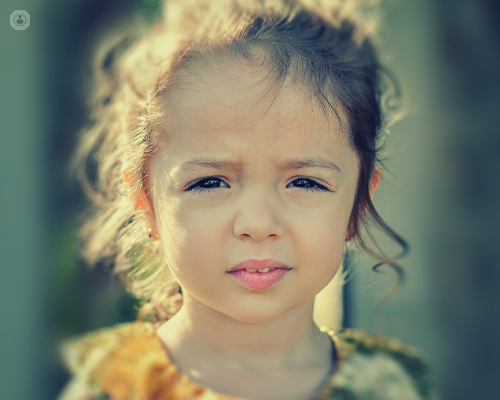All about about paediatric food allergy
Autore:Leading paediatric consultant Dr Mugilan Anandarajan discusses the ins and outs of paediatric food allergy, answering some of the most commonly-asked questions about it in this expert article.

What is food allergy?
Food allergy is an over-sensitivity/increased sensitivity to a particular food protein such as milk, egg or nut.
Allergen exposure causes the release of chemicals in the body which can cause unpleasant and potentially harmful effects. The most severe form is known as anaphylaxis which can be life threatening.
Some types of food allergy (often referred to as delayed or non-IgE mediated) are also called food intolerances.
What are the common food allergens?
The most common food allergies are:
- Milk
- Egg
- Nuts
- Sesame
- Fish
- Shell fish
- Soya
- Wheat
- Kiwi
What are the symptoms of food allergy?
Common symptoms of paediatric food allergy include:
- Itchy rash/hives
- Swelling
- Runny eyes and nose.
- Abdominal pain, diarrhoea and vomiting in more severe cases.
They can cause:
- Breathing problems
- Circulatory problems that lead to dizziness and collapse due to low blood pressure.
How are food allergies tested and diagnosed?
Paediatric food allergy is diagnosed by a detailed clinical history. This is taken by an experienced physician, and is coupled with allergy tests such as:
- Skin prick testing;
- Specific IgE blood testing, or;
- Allergen challenge, or provocation test, which involves directly exposing the patient to a substance in order to see whether they are allergic to it.
They remain the most reliable way to reach a diagnosis or exclude allergy as the cause of the problems.
What treatments are available for food allergies?
Standard medical advice is to avoid food allergens. There’s also another approach which is known as desensitisation or OIT (Oral Induction of Tolerance), depending on the allergen.
Can I get my child's food allergy treated?
Once there’s a clear diagnosis, we can discuss the options; whether avoidance or desensitisation are useful, and consider together which may be the best option in an individual case.
If you’re concerned your child is experiencing food allergy, arrange a consultation with Dr Anandarajan via his Top Doctors profile.


